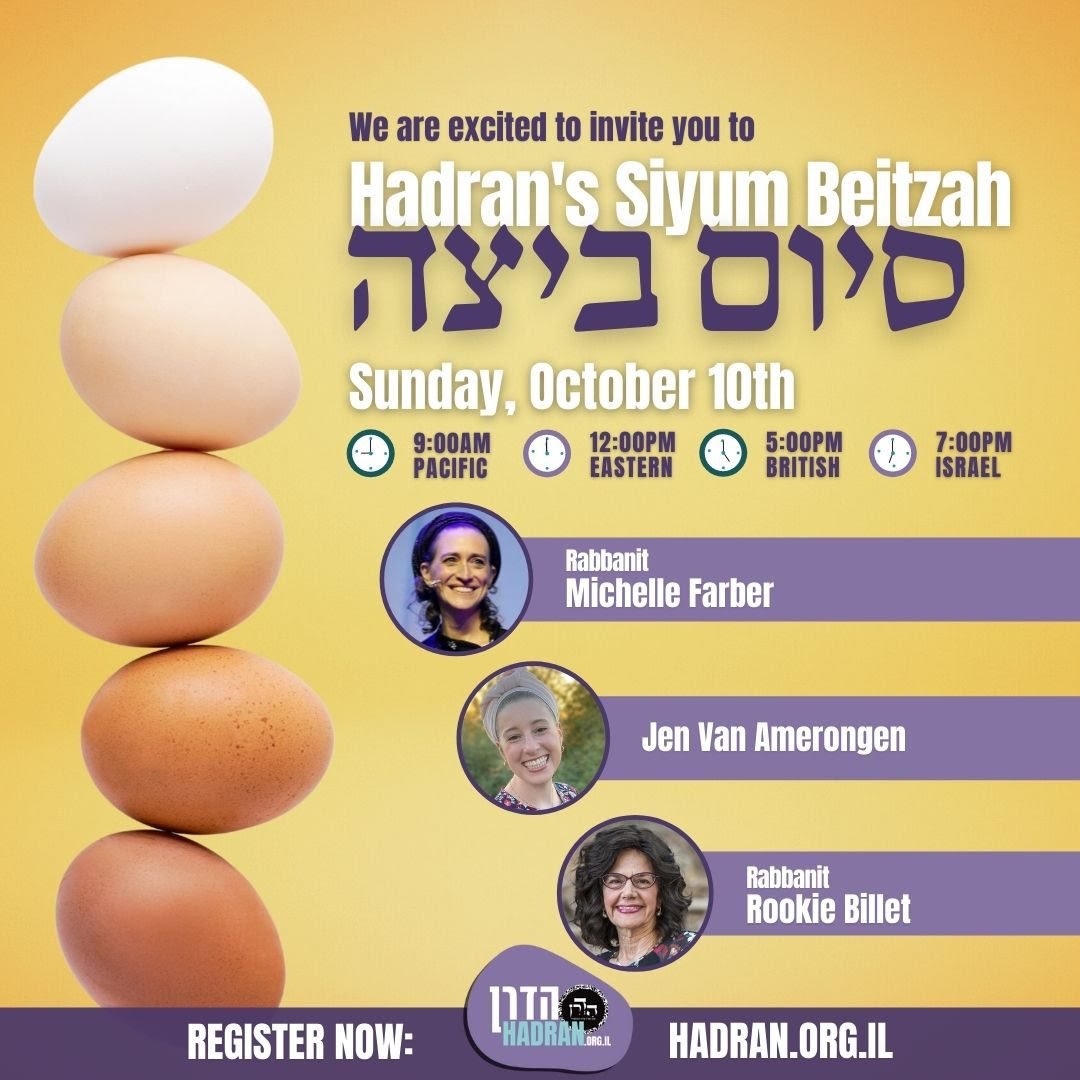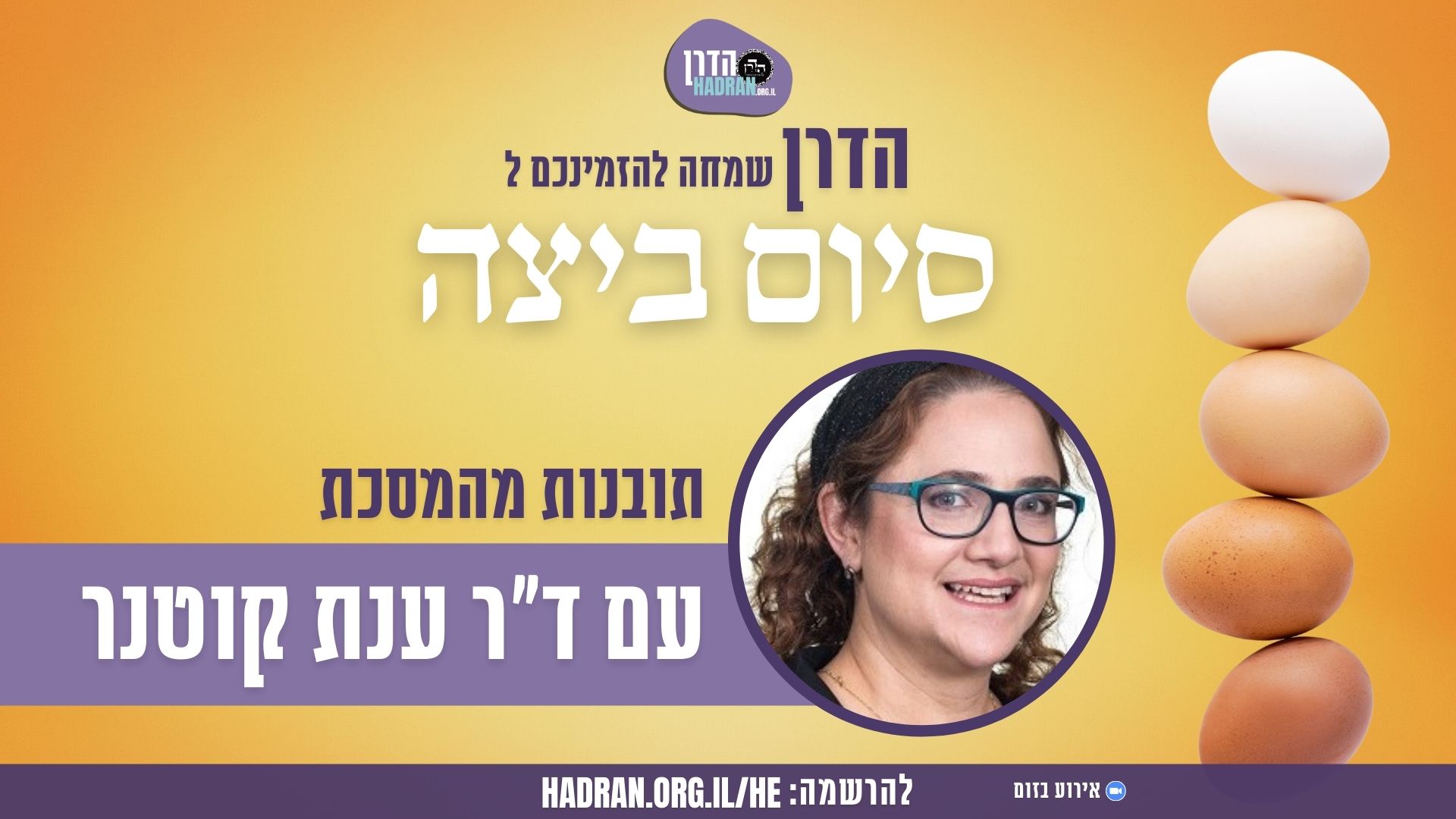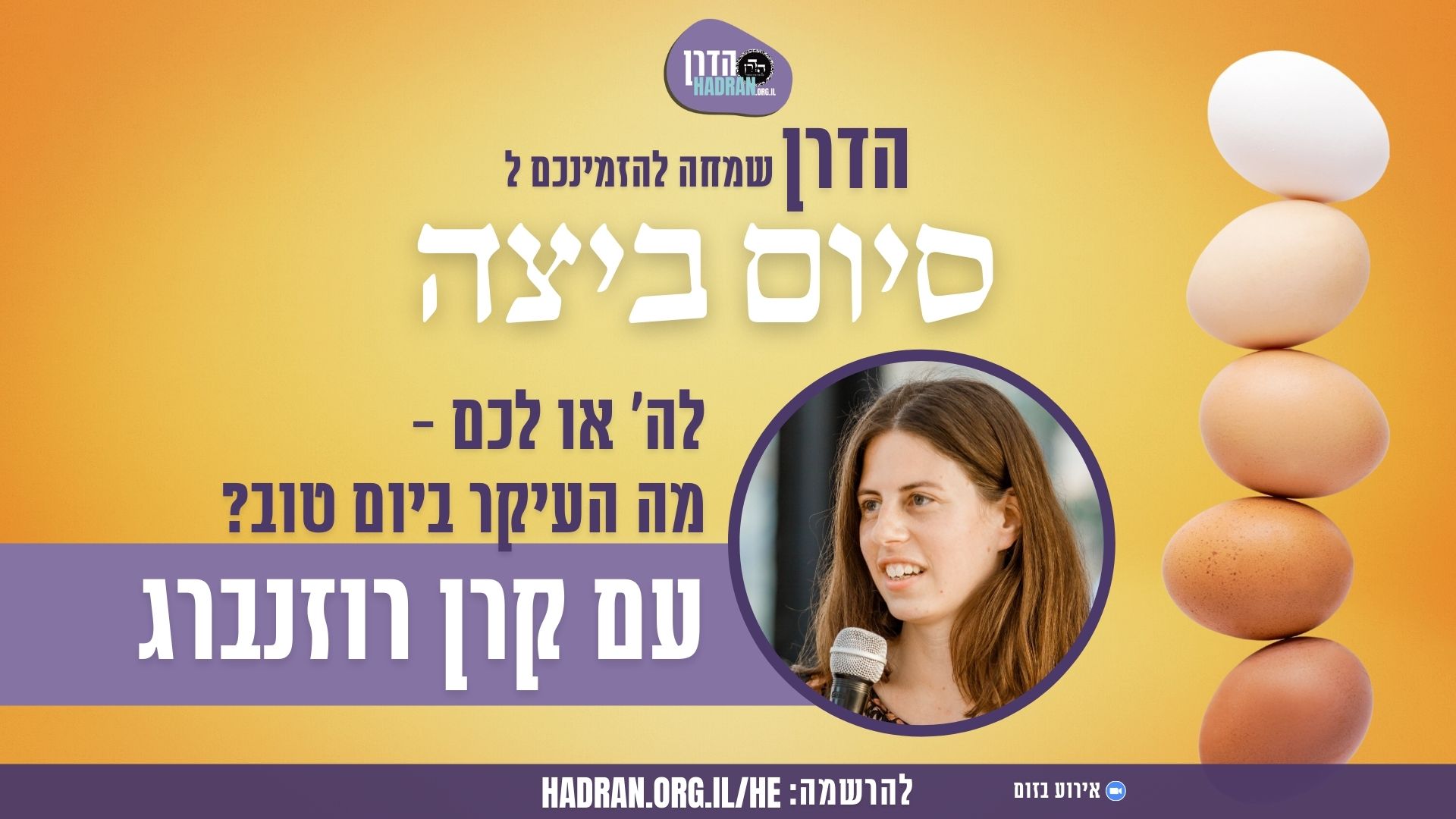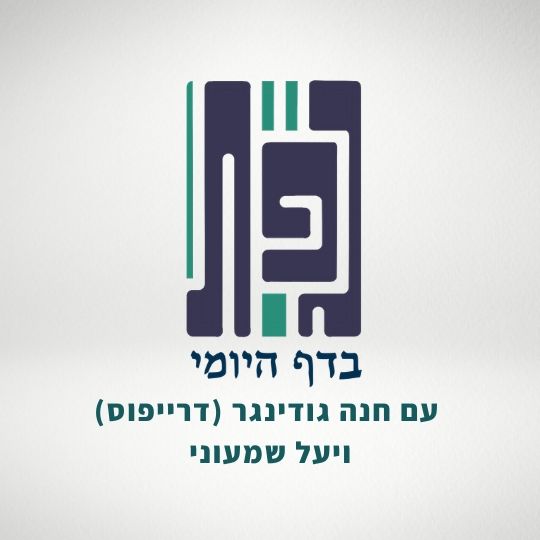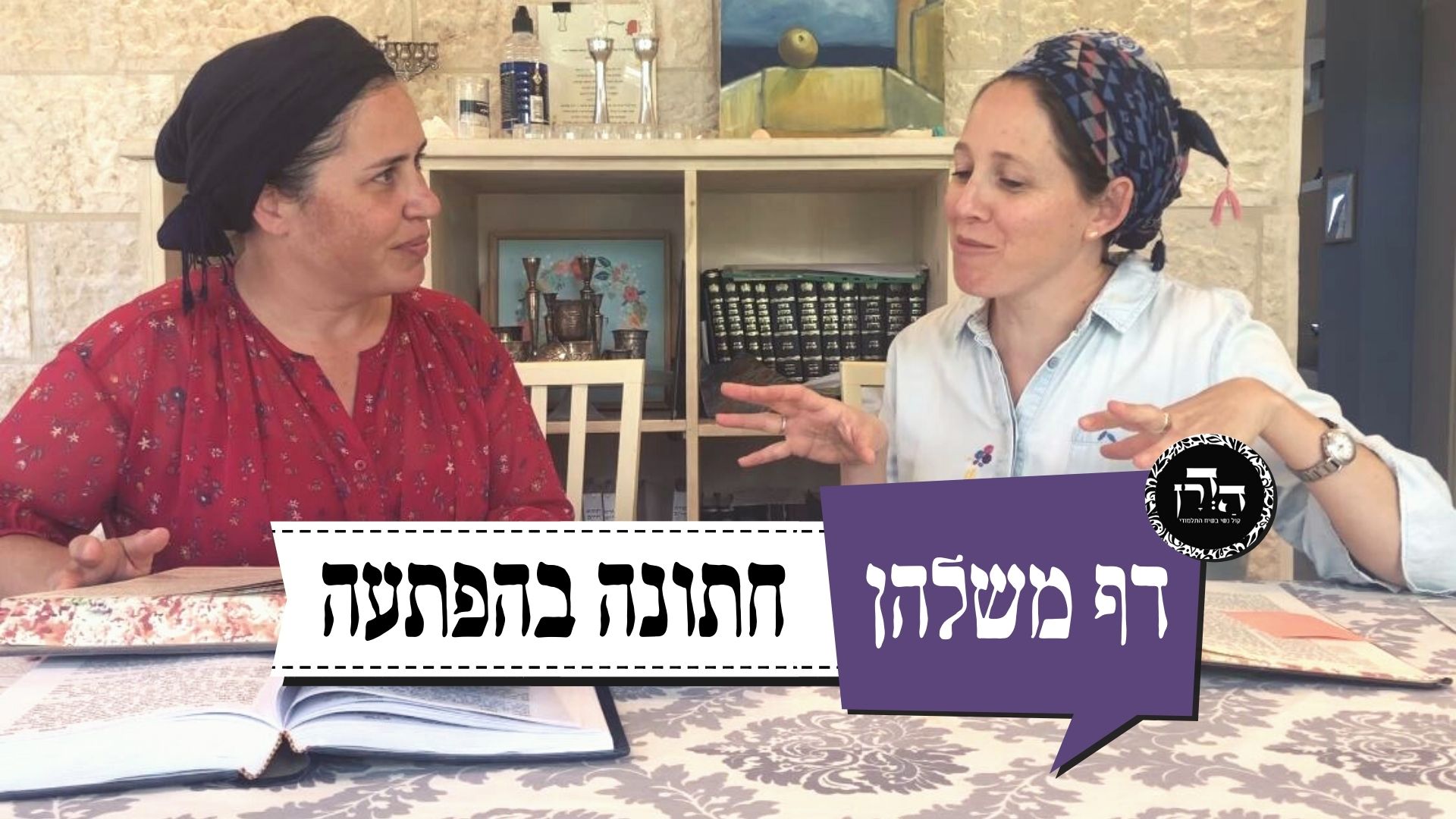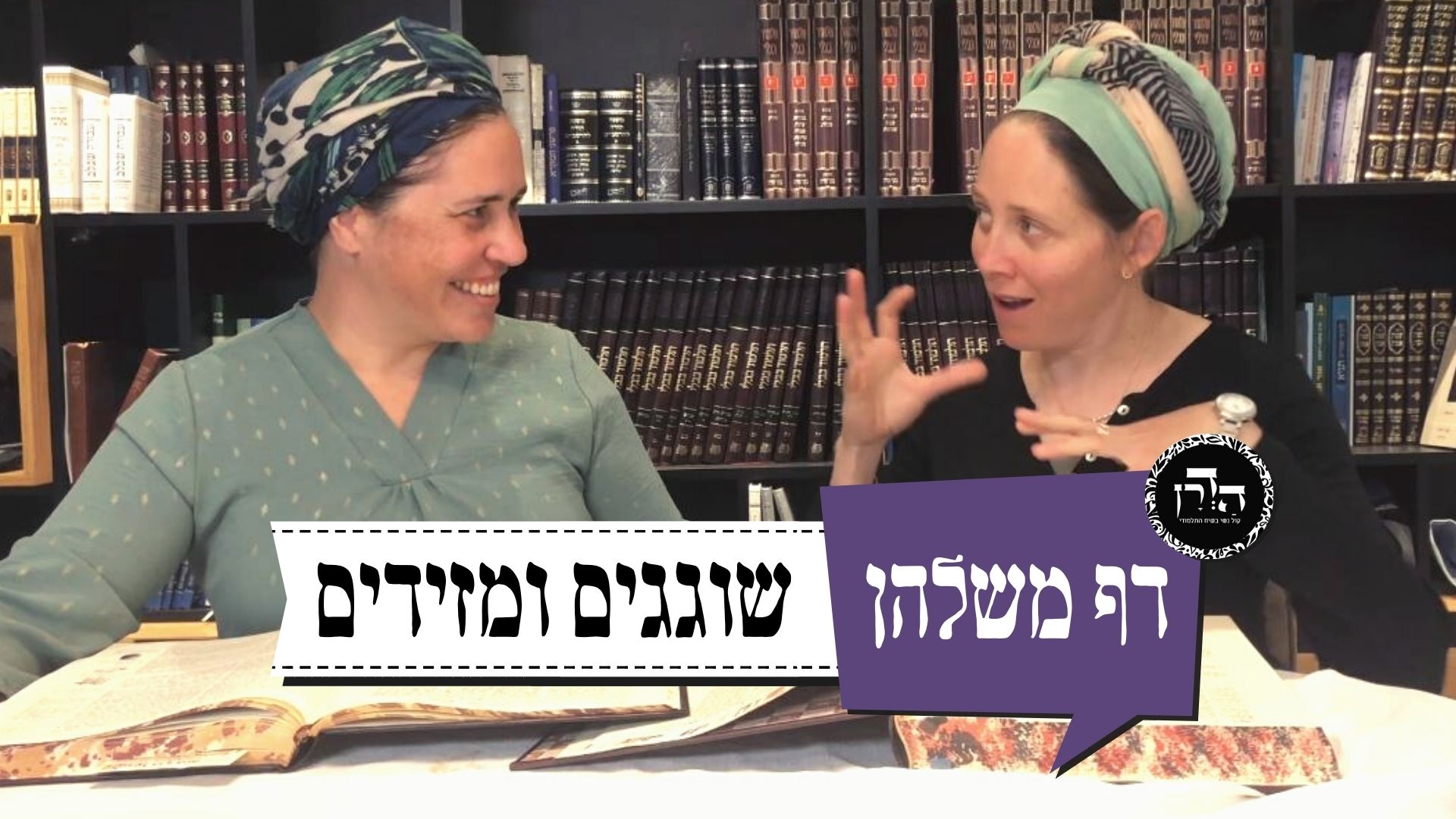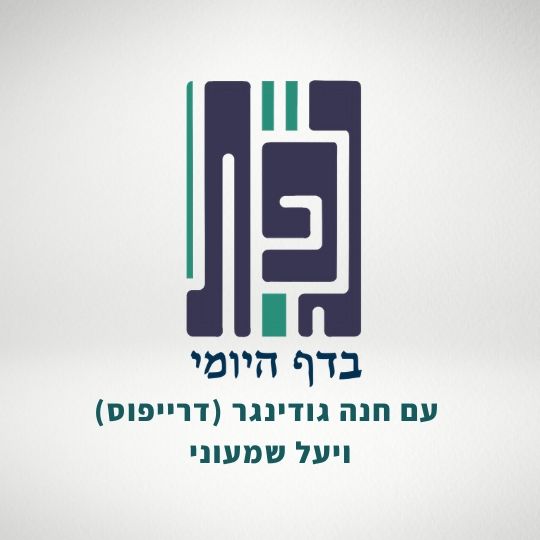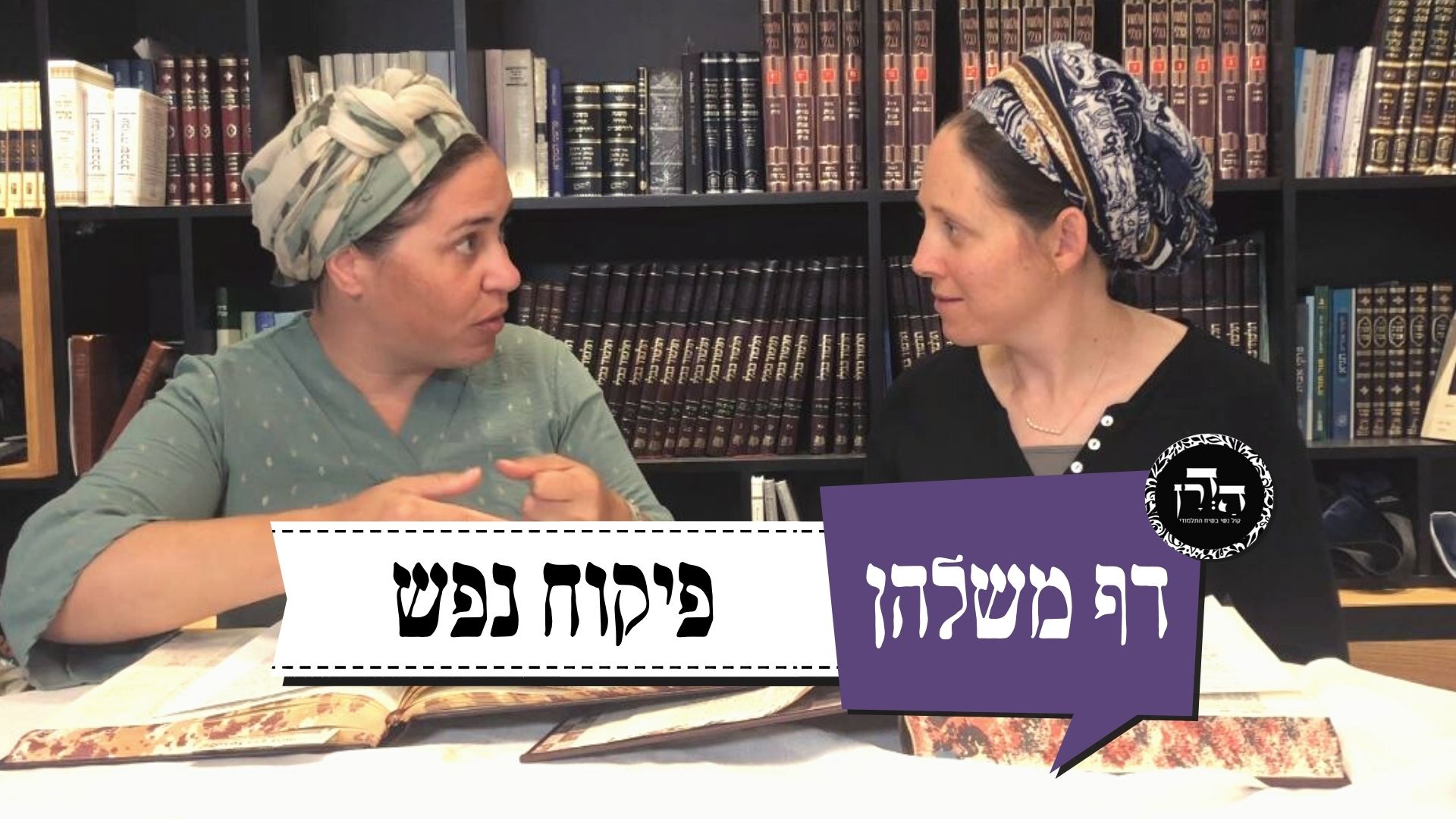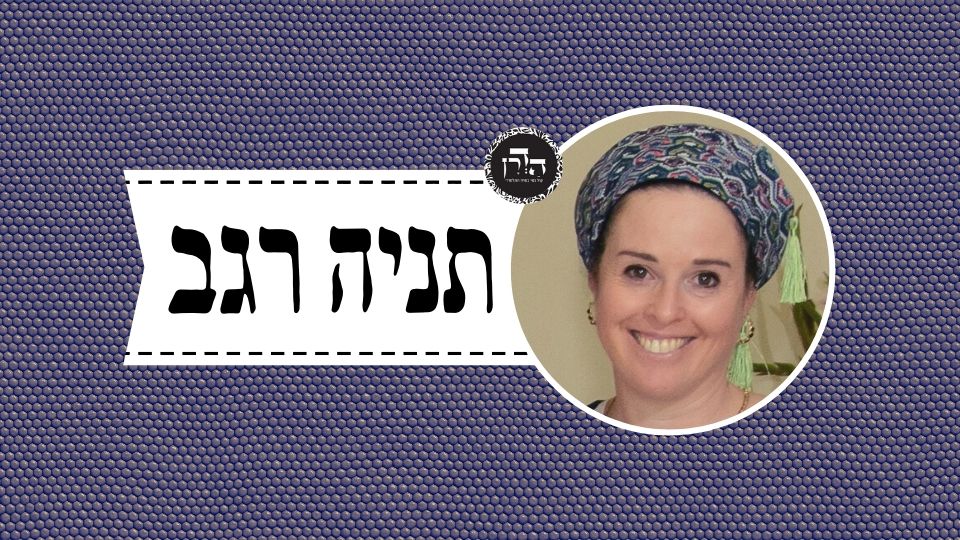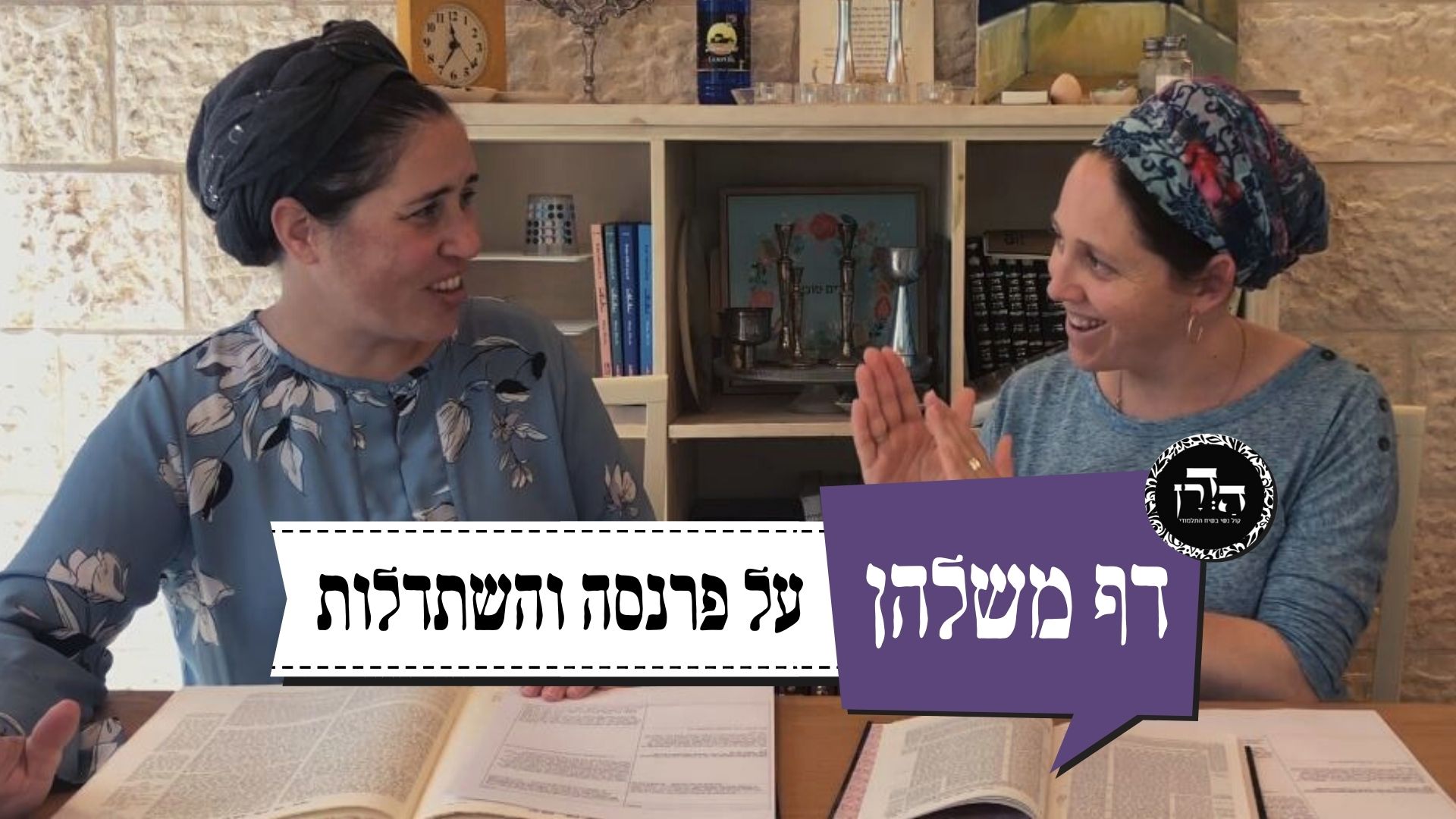ביצה יט
וְאִיבָּעֵית אֵימָא רַבָּנַן, וְכוּלַּהּ מַתְנִיתִין בְּשַׁבָּת.
And if you wish, say instead that the mishna is in accordance with the opinion of the Rabbis, and on a Festival one is permitted even to immerse an impure vessel on account of its water in order to purify the vessel. And the entire mishna is referring to Shabbat, when it is prohibited to immerse an impure vessel, but it is permitted to purify impure water by bringing it into contact with pure water in a stone vessel.
תָּנוּ רַבָּנַן: כְּלִי שֶׁנִּטְמָא מֵעֶרֶב יוֹם טוֹב — אֵין מַטְבִּילִין אוֹתוֹ בֵּין הַשְּׁמָשׁוֹת.
§ The Sages taught in a baraita: With regard to a vessel that became ritually impure on the eve of a Festival, one may not immerse it during twilight, a time period of doubtful status whether it is a weekday or a Festival, due to the possibility of violating the prohibition against immersing vessels on a Festival.
רַבִּי שִׁמְעוֹן שֵׁזוּרִי אוֹמֵר: אַף בַּחוֹל אֵין מַטְבִּילִין אוֹתוֹ, מִפְּנֵי שֶׁצָּרִיךְ הֶעֱרֵב שֶׁמֶשׁ.
Rabbi Shimon Shezuri says: Even on a weekday one may not immerse an impure vessel during twilight because the vessel requires sunset. After an impure vessel is immersed, it remains ritually impure for certain purposes until the sun has set and the stars have come out. If one immerses an impure vessel during the twilight period, then owing to the uncertainty as to whether it is day or night, he must wait another full day, until the next sunset, before using the vessel. It is therefore preferable not to put oneself in a situation where one might come to use a vessel before its purification process has been completed.
וְתַנָּא קַמָּא לָא בָּעֵי הֶעֱרֵב שֶׁמֶשׁ? אֲמַר רָבָא: אַשְׁכַּחְתִּינְהוּ לְרַבָּנַן דְּבֵי רַב דְּיָתְבִי וְקָא אָמְרִי, בְּמַחְשַׁבְתּוֹ נִכֶּרֶת מִתּוֹךְ מַעֲשָׂיו קָמִפַּלְגִי. וְהֵיכִי דָּמֵי — כְּגוֹן דְּנָקֵיט מָנָא בִּידֵיהּ, וְרָהֵיט וְאָזֵיל בֵּין הַשְּׁמָשׁוֹת לְאַטְבּוֹלֵיהּ.
The Gemara asks: And does the first tanna not require sunset? It is clear that this is required. Rava said: I found the Sages of the school of Rav sitting and saying with regard to this issue that they disagree about whether or not to accept the principle that one’s intention is evident from his actions. And what are the circumstances of this dispute? They are, for example, a case where one was holding a vessel in his hand and running along at the time of twilight to immerse it.
מָר סָבַר: הַאי דְּקָא רָהֵיט וְאָזֵיל — מִידָּע יָדַע דְּבָעֵי הֶעֱרֵב שֶׁמֶשׁ.
This Sage, i.e., the Rabbis, holds that the fact that he is running along indicates that he knows that the vessel requires sunset. If he arrives at the ritual bath late, he will realize that he must wait another day, and there is no concern that he might come to use the vessel on the same day. Consequently, it is prohibited to immerse the vessel during twilight on the eve of a Festival, as, since it may already be night and he will be unable to use the vessel until the next evening, immersing the vessel would be considered to be preparing something on a Festival for a weekday, which is prohibited. However, it is permitted to immerse a vessel during twilight on an ordinary weekday evening.
וּמָר סָבַר: מֵחֲמַת מְלַאכְתּוֹ הוּא דְּקָרָהֵיט.
And this Sage, Rabbi Shimon Shezuri, holds that perhaps he is running due to his work that he has not finished on time, and not necessarily because he knows that the purification of his vessel requires sunset. He believes that he may use the vessel immediately upon immersion; therefore, the Sages decreed that one should never immerse vessels during twilight.
וְאָמֵינָא לְהוּ אֲנָא: בְּמַחְשַׁבְתּוֹ נִכֶּרֶת מִתּוֹךְ מַעֲשָׂיו — דְּכוּלֵּי עָלְמָא לָא פְּלִיגִי. כִּי פְּלִיגִי כְּגוֹן דְּאִיטַּמִּי בְּפָחוֹת מִכַּעֲדָשָׁה, וַאֲתָא לְקַמֵּיהּ דְּרַבָּנַן לְשַׁיּוֹלֵי: בְּפָחוֹת מִכַּעֲדָשָׁה אִיטַּמִּי אִי לָא? מָר סָבַר: מִדְּהָא לָא גְּמִיר, הֶעֱרֵב שֶׁמֶשׁ נָמֵי לָא גְּמִיר, וּמָר סָבַר: הָא הוּא דְּלָא גְּמִיר, הָא הֶעֱרֵב שֶׁמֶשׁ גְּמִיר.
Rava continues: And I said to them: With regard to the principle that one’s intention is evident from his actions, everyone agrees that this is accepted. Where they disagree is, for example, in a case where a vessel became impure through contact with a creeping animal less than a lentil-bulk in size, and the vessel’s owner came before the Sages to ask whether a vessel becomes impure through contact with less than a lentil-bulk or not. One Sage, Rabbi Shimon Shezuri, holds that since he does not know this matter that a creeping animal smaller than a lentil-bulk does not impart impurity, it stands to reason that he also does not know the halakha of sunset; therefore, there is reason to prohibit him from immersing vessels during twilight even on a weekday. And one Sage, the Rabbis, who permit such immersion on a weekday, hold that it is only this halakha with regard to the size of a creeping animal that he does not know, but the requirement of sunset he does know, as it is stated explicitly in the Torah.
וּמַטְבִּילִין מִגַּב לְגַב. תָּנוּ רַבָּנַן: כֵּיצַד מִגַּב לְגַב? הָרוֹצֶה לַעֲשׂוֹת גִּתּוֹ עַל גַּב כַּדּוֹ,
It was taught in the mishna that one may immerse on a Festival from one principle to another and from one group to another. The Gemara attempts to clarify the meaning of this statement: The Sages taught in a baraita: How does one immerse from one principle to another? One who wishes to make his winepress, meaning to immerse and purify vessels for the sake of his winepress, in addition to the purification of his ritually impure pitcher, may do so. In other words, if at first he merely intended to immerse his impure pitcher, but subsequently changed his mind and decided to use it for his winepress, and he wishes to immerse the pitcher a second time for the sake of the winepress, it is permitted to do so.
וְכַדּוֹ עַל גַּב גִּתּוֹ — עוֹשֶׂה.
Similarly, one who wishes to make his pitcher in addition to the purification of his vessels for the sake of his winepress may do so. That is to say, if he originally intended to use the pitcher for his winepress, and after immersing it he decided not to use it for that purpose, and now he wishes to immerse his pitcher a second time, it is permitted to do so. Since the second immersion does not purify the vessel or fulfill any obligation, it is not considered a proper immersion and is not prohibited on a Festival.
כֵּיצַד מֵחֲבוּרָה לַחֲבוּרָה? הָיָה אוֹכֵל בַּחֲבוּרָה זוֹ, וְרוֹצֶה לֶאֱכוֹל בַּחֲבוּרָה אַחֶרֶת — הָרְשׁוּת בְּיָדוֹ.
Similarly, how does one immerse from one group to another? If one was planning to eat the Paschal offering with this group, and he immersed himself or his ritually impure vessels for that purpose; and now he has reconsidered and wishes to eat the offering with a different group, and he wants to immerse himself or his vessels a second time for the second group, in such a case he has permission to do so even on a Festival, for the same reason: Since this immersion is not obligatory, it is not viewed as an immersion at all.
מַתְנִי׳ בֵּית שַׁמַּאי אוֹמְרִים: מְבִיאִין שְׁלָמִים וְאֵין סוֹמְכִין עֲלֵיהֶן, אֲבָל לֹא עוֹלוֹת. וּבֵית הִלֵּל אוֹמְרִים: מְבִיאִין שְׁלָמִים וְעוֹלוֹת וְסוֹמְכִין עֲלֵיהֶן.
MISHNA: Beit Shammai say: One may bring peace-offerings on a Festival, but one may not place his hands on them, as this is considered using animals, which is prohibited on a Festival by rabbinic decree. However, one may not bring burnt-offerings, apart from the obligatory daily and additional offerings of the day, because burnt-offerings are consumed entirely on the altar and not by people, and slaughter is permitted on a Festival only for the purpose of human consumption. And Beit Hillel say: One may bring both peace-offerings and burnt-offerings, and one may even place his hands on them.
גְּמָ׳ אָמַר עוּלָּא: מַחְלוֹקֶת בְּשַׁלְמֵי חֲגִיגָה לִסְמוֹךְ, וְעוֹלַת רְאִיָּיה לִיקְרַב. דְּבֵית שַׁמַּאי סָבְרִי: ״וְחַגֹּתֶם אוֹתוֹ חַג לַה׳״, חֲגִיגָה — אִין, עוֹלַת רְאִיָּיה — לָא. וּבֵית הִלֵּל סָבְרִי: ״לַה׳״, כֹּל דְּלַה׳.
GEMARA: Ulla said: The dispute applies only to Festival peace-offerings, an obligation of the Festival, with respect to placing hands on them, and to burnt-offerings of appearance, which must be brought over the course of the Festival, with respect to sacrificing them. As Beit Shammai hold that the verse “You shall observe [vaḥaggotem] it as a Festival to the Lord seven days in the year” (Leviticus 23:41) indicates: Festival peace-offerings [ḥagiga], yes, they may be sacrificed even on a Festival day, but burnt-offerings of appearance, no, they may not. And Beit Hillel hold: “To the Lord” means that anything brought as an offering to the Lord may be sacrificed throughout the seven days of the holiday, even on the actual Festival day.
אֲבָל נְדָרִים וּנְדָבוֹת — דִּבְרֵי הַכֹּל אֵין קְרֵיבִין בְּיוֹם טוֹב. וְכֵן אָמַר רַב אַדָּא בַּר אַהֲבָה: נְדָרִים וּנְדָבוֹת אֵין קְרֵיבִין בְּיוֹם טוֹב.
But with regard to vow-offerings and gift-offerings, which are not part of the obligations of the day, all agree, even Beit Hillel, that they may not be sacrificed on a Festival. And likewise, Rav Adda bar Ahava said: Vow-offerings and gift-offerings may not be sacrificed on a Festival.
מֵתִיבִי, אָמַר רַבִּי שִׁמְעוֹן בֶּן אֶלְעָזָר: לֹא נֶחְלְקוּ בֵּית שַׁמַּאי וּבֵית הִלֵּל עַל עוֹלָה שֶׁאֵינָהּ שֶׁל יוֹם טוֹב, שֶׁאֵינָהּ קְרֵבָה בְּיוֹם טוֹב, וְעַל שְׁלָמִים שֶׁהֵן שֶׁל יוֹם טוֹב, שֶׁקְּרֵיבִין בְּיוֹם טוֹב.
The Gemara raises an objection against Ulla’s statement from the following baraita: Rabbi Shimon ben Elazar said: Beit Shammai and Beit Hillel did not disagree with regard to a burnt-offering that is not part of the requirements of the Festival, such as a vow-offering or a gift-offering, that it may not be sacrificed on a Festival, or with regard to peace-offerings that are part of the Festival obligations, such as Festival peace-offerings or peace-offerings of rejoicing, that they may be sacrificed on a Festival, as the Festival is their designated time, and if one fails to bring them then he will be unable to sacrifice them later.
עַל מָה נֶחְלְקוּ — עַל עוֹלָה שֶׁהִיא שֶׁל יוֹם טוֹב, וְעַל שְׁלָמִים שֶׁאֵינָן שֶׁל יוֹם טוֹב. שֶׁבֵּית שַׁמַּאי אוֹמְרִים: לֹא יָבִיא, ובֵית הִלֵּל אוֹמְרִים: יָבִיא.
The baraita continues: With regard to what, then, did they disagree? It is with regard to a burnt-offering that is part of the Festival requirements, such as the burnt-offering of appearance, and with regard to peace-offerings that are not part of the Festival obligations, such as vow-offerings and gift-offerings. As Beit Shammai say: He may not bring them, and Beit Hillel say: He may bring them. This baraita contradicts Ulla’s opinion that all agree that vow-offerings and gift-offerings may not be sacrificed on a Festival.
תָּרֵיץ וְאֵימָא הָכִי: אָמַר רַבִּי שִׁמְעוֹן בֶּן אֶלְעָזָר, לֹא נֶחְלְקוּ בֵּית שַׁמַּאי וּבֵית הִלֵּל עַל עוֹלָה וּשְׁלָמִים שֶׁאֵינָן שֶׁל יוֹם טוֹב, שֶׁאֵין קְרֵיבִין בְּיוֹם טוֹב, וְעַל שְׁלָמִים שֶׁהֵן שֶׁל יוֹם טוֹב, שֶׁקְּרֵיבִין בְּיוֹם טוֹב. עַל מָה נֶחְלְקוּ — עַל עוֹלָה שֶׁהִיא שֶׁל יוֹם טוֹב, שֶׁבֵּית שַׁמַּאי אוֹמְרִים: לֹא יָבִיא, ובֵית הִלֵּל אוֹמְרִים: יָבִיא.
The Gemara answers: Resolve the contradiction by emending the text, and say as follows: Rabbi Shimon ben Elazar said: Beit Shammai and Beit Hillel did not disagree with regard to burnt-offerings and peace-offerings that are not part of the requirements of the Festival, such as vow-offerings and gift-offerings, that they are certainly not sacrificed on a Festival, or with regard to peace-offerings that are part of the Festival obligations, such as Festival peace-offerings or peace-offerings of rejoicing, that they may be sacrificed on a Festival. With regard to what did they disagree? It is with regard to a burnt-offering that is part of the Festival requirements, such as the burnt-offering of appearance, as Beit Shammai say: He may not bring it, and Beit Hillel say: He may bring it.
רַב יוֹסֵף אָמַר: תַּנָּאֵי שָׁקְלַתְּ מֵעָלְמָא?! תַּנָּאֵי הִיא. דְּתַנְיָא: שְׁלָמִים הַבָּאִים מֵחֲמַת יוֹם טוֹב בְּיוֹם טוֹב, בֵּית שַׁמַּאי אוֹמְרִים: סוֹמֵךְ עֲלֵיהֶן מֵעֶרֶב יוֹם טוֹב, וְשׁוֹחֲטָן בְּיוֹם טוֹב. וּבֵית הִלֵּל אוֹמְרִים: סוֹמֵךְ עֲלֵיהֶן בְּיוֹם טוֹב, וְשׁוֹחֲטָן בְּיוֹם טוֹב.
Rav Yosef said: There were never any grounds for objection from the outset, as have you removed all the tanna’im from the world? This is the subject of a dispute among tanna’im, and Rabbi Shimon ben Elazar’s opinion was not unanimously accepted. As it is taught in a different baraita: With regard to peace-offerings that come on account of a Festival on the Festival, e.g., Festival peace-offerings or peace-offerings of rejoicing, Beit Shammai say: One places his hands on them on the eve of the Festival and slaughters them on the Festival, and Beit Hillel say: One places his hands on them on the Festival itself and slaughters them on the Festival.
אֲבָל נְדָרִים וּנְדָבוֹת — דִּבְרֵי הַכֹּל אֵין קְרֵיבִין בְּיוֹם טוֹב.
However, with regard to vow-offerings and gift-offerings, all agree that they may not be sacrificed on the actual Festival day, as stated by Ulla and Rav Adda bar Ahava.
וְהָנֵי תַּנָּאֵי כִּי הָנֵי תַּנָּאֵי, דְּתַנְיָא: אֵין מְבִיאִין תּוֹדָה בְּחַג הַמַּצּוֹת, מִפְּנֵי חָמֵץ שֶׁבָּהּ. וְלָא בָּעֲצֶרֶת — מִפְּנֵי שֶׁהוּא יוֹם טוֹב. אֲבָל מֵבִיא אָדָם תּוֹדָתוֹ בְּחַג הַסּוּכּוֹת.
§ The Gemara comments that in this matter, these tanna’im are like those tanna’im, who also disagreed about the same issue, as it is taught in a baraita: One may not bring a thanks-offering on the festival of Matzot due to the leavened bread included with it, as a thanks-offering must be accompanied by a meal-offering of forty loaves, ten of which are leavened bread, which may not be eaten on Passover. Nor may one bring this offering on Shavuot because it is a Festival, on which one may not bring any offering, even one that is eaten, if it is not part of the Festival obligations. However, a person may bring his thanks-offering on the festival of Sukkot.
רַבִּי שִׁמְעוֹן אוֹמֵר: הֲרֵי הוּא אוֹמֵר ״בְּחַג הַמַּצּוֹת וּבְחַג הַשָּׁבוּעוֹת וּבְחַג הַסֻּכּוֹת״, כֹּל שֶׁבָּא בְּחַג הַמַּצּוֹת — בָּא בְּחַג הַשָּׁבוּעוֹת וּבְחַג הַסּוּכּוֹת, וְכֹל שֶׁלֹּא בָּא בְּחַג הַמַּצּוֹת — אֵינוֹ בָּא בְּחַג הַשָּׁבוּעוֹת וּבְחַג הַסּוּכּוֹת. רַבִּי אֶלְעָזָר בְּרַבִּי שִׁמְעוֹן אוֹמֵר: מֵבִיא אָדָם תּוֹדָתוֹ בְּחַג הַסּוּכּוֹת, וְיוֹצֵא בָּהּ יְדֵי חוֹבָתוֹ מִשּׁוּם שִׂמְחָה, וְאֵין יוֹצֵא בָּהּ מִשּׁוּם חֲגִיגָה.
The baraita continues: Rabbi Shimon says: But it says: “On the festival of Matzot, on the festival of Shavuot, and on the festival of Sukkot” (Deuteronomy 16:16), to teach: Any offering that comes on the festival of Matzot may come on the festival of Shavuot and on the festival of Sukkot, and any offering that does not come on the festival of Matzot may not come on the festival of Shavuot or on the festival of Sukkot. Rabbi Elazar, son of Rabbi Shimon, says: A person may bring his thanks-offering on the festival of Sukkot and fulfill with it his obligation to bring peace-offerings of rejoicing. One fulfills the mitzva to rejoice on a Festival by eating the meat of offerings, and this obligation can be fulfilled with the meat of a thanks-offering. But he does not fulfill with it the obligation to bring a Festival peace-offering.
אָמַר מָר: אֵין מְבִיאִין תּוֹדָה בְּחַג הַמַּצּוֹת — מִפְּנֵי חָמֵץ שֶׁבָּהּ. פְּשִׁיטָא! אָמַר רַב אַדָּא בְּרֵיהּ דְּרַב יִצְחָק, וְאָמְרִי לַהּ רַב שְׁמוּאֵל בַּר אַבָּא: הָכָא בְּאַרְבָּעָה עָשָׂר עָסְקִינַן, וְקָסָבַר: אֵין מְבִיאִין קָדָשִׁים לְבֵית הַפְּסוּל.
The Gemara analyzes the baraita cited above. The Master said in the baraita that one may not bring a thanks-offering on the festival of Matzot due to the leavened bread included with it. The Gemara expresses surprise: It is obvious that one may not bring this offering on Passover, as it contains leavened bread. Rav Adda, son of Rav Yitzḥak, said, and some say it was Rav Shmuel bar Abba who said: Here, this baraita is not discussing Passover itself; rather, we are dealing with a thanks-offering sacrificed on the fourteenth of Nisan, i.e., on Passover eve, and this tanna holds that one may not bring consecrated offerings to a situation where the time that they may be eaten is restricted, thereby increasing the likelihood of disqualification. Although it is permitted to eat leavened bread until the sixth hour of the fourteenth of Nisan, one may not bring a thanks-offering on Passover eve. The reason is that a thanks-offering may usually be eaten for one full day and the following night, and if it is brought on the eve of Passover, the time available before disqualification is reduced.
וְלֹא בָּעֲצֶרֶת — מִפְּנֵי שֶׁהוּא יוֹם טוֹב. קָסָבַר: נְדָרִים וּנְדָבוֹת אֵין קְרֵיבִין בְּיוֹם טוֹב.
It was further taught in the baraita: Nor may one bring a thanks-offering on Shavuot because it is a Festival. The Gemara explains: This tanna holds that vow-offerings and gift-offerings may not be sacrificed on a Festival.
אֲבָל מֵבִיא אָדָם תּוֹדָתוֹ בְּחַג הַסּוּכּוֹת. אֵימַת? אִילֵּימָא בְּיוֹם טוֹב עַצְמוֹ — וְהָא אָמְרַתְּ: וְלֹא בָּעֲצֶרֶת מִפְּנֵי שֶׁהוּא יוֹם טוֹב! אֶלָּא בְּחוּלּוֹ שֶׁל מוֹעֵד.
The baraita continues: However, a person may bring his thanks-offering on the festival of Sukkot. The Gemara asks: When? If we say he may bring it on the Festival day of Sukkot itself, this is difficult, as didn’t you say: Nor may one bring a thanks-offering on Shavuot because it is a Festival, indicating that a thanks-offering may not be brought on an actual Festival day? The same should apply to Sukkot. Rather, it means that one may bring it on the intermediate days of the Festival.
רַבִּי שִׁמְעוֹן אוֹמֵר: הֲרֵי הוּא אוֹמֵר ״בְּחַג הַמַּצּוֹת וּבְחַג הַשָּׁבוּעוֹת וּבְחַג הַסּוּכּוֹת״, כׇּל שֶׁבָּא בְּחַג הַמַּצּוֹת — בָּא בְּחַג הַשָּׁבוּעוֹת וּבְחַג הַסּוּכּוֹת, וְכׇל שֶׁלֹּא בָּא בְּחַג הַמַּצּוֹת — אֵינוֹ בָּא בְּחַג הַשָּׁבוּעוֹת וּבְחַג הַסּוּכּוֹת. מַתְקֵיף לַהּ רַבִּי זֵירָא: הַשְׁתָּא סַלּוֹתֵי מְסַלְּתִינַן, נְדָרִים וּנְדָבוֹת מִבַּעְיָא?!
The baraita further taught that Rabbi Shimon says: But it says: “On the festival of Matzot, on the festival of Shavuot, and on the festival of Sukkot,” to teach: Any offering that comes on the festival of Matzot may come on the festival of Shavuot and on the festival of Sukkot, and any offering that does not come on the festival of Matzot may not come on the festival of Shavuot or on the festival of Sukkot. This seems to indicate that thanks-offerings may not be brought on any Festival. Rabbi Zeira strongly objects to this: Now, if we may chop kindling wood on the intermediate days of the Festival for the sake of the Festival, is it necessary to state that it is permitted to sacrifice vow-offerings and gift-offerings on the intermediate Festival days? How can it be suggested that Rabbi Shimon prohibits bringing thanks-offerings on the intermediate days of the festival of Sukkot?
אָמַר אַבָּיֵי: בְּהַקְרָבָה כּוּלֵּי עָלְמָא לָא פְּלִיגִי דִּשְׁרֵי. כִּי פְּלִיגִי, לְמֵיקַם עֲלֵיהּ בְּ״בַל תְּאַחֵר״.
Abaye said: With regard to sacrificing these offerings on the intermediate days of a Festival, everyone agrees that it is permitted. When they disagree, it is not with regard to the halakhot of a Festival but with respect to determining when one is liable for violating the prohibition: You must not delay. If one vows to bring an offering but fails to fulfill his pledge, how much time must pass before he transgresses the prohibition: “You shall not delay to pay it” (Deuteronomy 23:22)?
תַּנָּא קַמָּא סָבַר: שָׁלֹשׁ רְגָלִים אָמַר רַחֲמָנָא — אֲפִילּוּ שֶׁלֹּא כְּסִדְרָן.
The first tanna holds that the Merciful One states three Festivals in the Torah, even not in their proper order, meaning not in accordance with the yearly cycle found in the Torah: Passover, Shavuot, Sukkot. As soon as three Festivals have passed from the day a person took his vow, if he has yet to bring his offering, he has transgressed the prohibition against delaying. Therefore, the first tanna advises a person who vowed to bring a thanks-offering to do so on Sukkot, even if it is the first Festival after his vow, and even though it is not the first Festival listed by the Torah. If he fails to do so, he will have to make a special trip to Jerusalem in order to sacrifice the offering, as he will not be able to sacrifice it on Passover due to the leavened bread it contains, or on Shavuot because it does not have intermediate Festival days.
וְרַבִּי שִׁמְעוֹן סָבַר: כְּסִדְרָן — אִין, שֶׁלֹּא כְּסִדְרָן — לָא.
But Rabbi Shimon holds that if three Festivals have passed in their proper order, yes, he has violated the prohibition against delaying; but if they have passed not in their proper order, he has not violated the prohibition. If, for example, one vowed to bring an offering between Passover and Shavuot, he may put off bringing the offering until Sukkot of the following year, and therefore he would not be required to travel an extra time to Jerusalem specifically for this purpose.
רַבִּי אֶלְעָזָר בְּרַבִּי שִׁמְעוֹן אוֹמֵר: מֵבִיא אָדָם תּוֹדָתוֹ בְּחַג הַסּוּכּוֹת. אֵימַת? אִילֵּימָא בְּחוּלּוֹ שֶׁל מוֹעֵד — הַיְינוּ תַּנָּא קַמָּא. אֶלָּא בְּיוֹם טוֹב, וְקָסָבַר נְדָרִים וּנְדָבוֹת קְרֵיבִין בְּיוֹם טוֹב.
The baraita further taught that Rabbi Elazar, son of Rabbi Shimon, says: A person may bring his thanks-offering on the festival of Sukkot. The Gemara asks: When? If we say that he means on the intermediate days of the Festival, this is identical to the opinion of the first tanna of the baraita. Rather, he must be referring to the Festival day itself, and he holds that vow-offerings and gift-offerings may be sacrificed on a Festival.
וּמַאי שְׁנָא חַג הַסּוּכּוֹת דְּנָקֵט? רַבִּי אֶלְעָזָר בְּרַבִּי שִׁמְעוֹן לְטַעְמֵיהּ, דְּתַנְיָא, רַבִּי שִׁמְעוֹן אוֹמֵר: לֹא יֵאָמֵר ״חַג הַסּוּכּוֹת״, שֶׁבּוֹ הַכָּתוּב מְדַבֵּר. לָמָּה נֶאֱמַר — לוֹמַר שֶׁזֶּה אַחֲרוֹן.
The Gemara asks: If so, what is different about the festival of Sukkot that he cited it specifically as an example of a Festival? The Gemara answers: Rabbi Elazar, son of Rabbi Shimon, conforms to his standard line of reasoning, and this ruling too is related to the prohibition against delaying. As it is taught in a baraita that Rabbi Shimon says: The verse did not have to say “the festival of Sukkot,” of which the immediately preceding verse was speaking; it was only necessary to add the other Festivals. Why, then, is “the festival of Sukkot” stated? It is to say that this Festival, i.e., Sukkot, must be the last one with regard to the prohibition against delaying; one transgresses the prohibition only if the three Festivals have passed in their proper order, so that Sukkot is the last of the three.
רַבִּי אֶלְעָזָר בְּרַבִּי שִׁמְעוֹן אוֹמֵר: לוֹמַר שֶׁזֶּה גּוֹרֵם.
However, Rabbi Elazar, son of Rabbi Shimon, says: It comes to say that this Festival is what causes a person to be late in fulfilling his vow. In his view, the prohibition against delaying does not depend on the number of Festivals. Rather, it means that by the time of Sukkot, the last Festival according to the yearly cycle found in the Torah, one must have brought all of his vow-offerings of that year. Even one who vowed to bring an offering just before Sukkot must bring his offering before the Festival ends.
וְיוֹצֵא בָּהּ מִשּׁוּם שִׂמְחָה, וְאֵינוֹ יוֹצֵא בָּהּ מִשּׁוּם חֲגִיגָה. פְּשִׁיטָא! דָּבָר שֶׁבְּחוֹבָה הִיא, וְכׇל דָּבָר שֶׁבְּחוֹבָה אֵינוֹ בָּא אֶלָּא מִן הַחוּלִּין!
It is taught in the baraita: A person may bring his thanks-offering on the festival of Sukkot and fulfill with it his obligation to bring peace-offerings of rejoicing, but he does not fulfill with it the obligation to bring a Festival peace-offering. The Gemara expresses surprise: It is obvious that one does not fulfill his obligation to bring a Festival peace-offering with his thanks-offering. The Festival peace-offering is an obligatory matter, as everyone is obligated to bring this offering, and the principle is that anything that is an obligatory matter must come only from that which is non-sacred, meaning that one cannot bring an obligatory offering from an animal that has already been consecrated for another purpose. It follows that one cannot discharge his obligation to bring a Festival peace-offering with a thanks-offering, as he is already obligated to bring the latter and has consecrated the animal for this purpose.
לָא צְרִיכָא, דְּאַף עַל גַּב דְּפָרֵישׁ.
The Gemara answers: No, it is necessary to state this halakha in order to teach that even if one specified at the time of his vow that he is consecrating the animal as a thanks-offering on condition that it may be used as a Festival peace-offering as well, he nevertheless does not fulfill his obligation with it.
כְּדִבְעָא מִנֵּיהּ רַבִּי שִׁמְעוֹן בֶּן לָקִישׁ מֵרַבִּי יוֹחָנָן: הָאוֹמֵר הֲרֵי עָלַי תּוֹדָה וְאֵצֵא בָּהּ יְדֵי חֲגִיגָה, הֲרֵינִי נָזִיר
This teaching is similar to the question that Rabbi Shimon ben Lakish asked of Rabbi Yoḥanan: With regard to one who vows and says: It is incumbent upon me to bring a thanks-offering, and I will also fulfill my obligation to bring a Festival peace-offering with it; or if he says: I am a nazirite,

